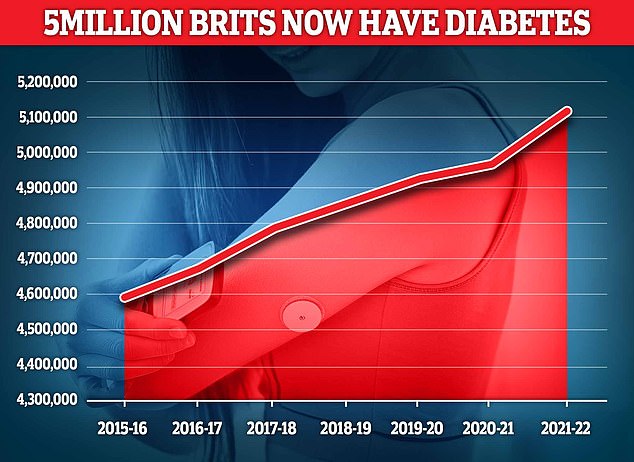The NHS soup and smoothie diet is putting “remission on the map” for thousands of type 2 diabetics, a major study has found.
The first real-world data analysis found that one-third of patients who followed the strict diet program lost weight and saw their symptoms disappear.
Experts said this shows that obesity can be tackled “head on” through lifestyle changes alone, leading to “life-changing benefits” for patients.
This comes months after the NHS chief announced the nationwide rollout of the plan, which limits calories to 800 a day, in a bid to tackle rising levels of the disease.
The first real-world data analysis of the NHS soup and smoothie diet has shown the eating plan can help people successfully lose weight, with a third of patients maintaining it for a year.
Researchers examined data from 7,540 people who participated in the program between September 2020 and December 2022.
Of the 945 who completed a full year of the program, the average weight loss was 2st5lbs (15.9kg).
Blood tests revealed that 32 percent had gone into remission, meaning they had normal blood sugar levels for at least three months.
Dr Clare Hambling, NHS England’s national clinical director for diabetes and obesity, said the “brilliant” findings could alter the course of obesity in the country, which has some of the worst rates in the world.
She said: “We know that obesity is one of the biggest threats to health in the UK and will be one of the biggest and most costly challenges to health systems globally, so seeing such encouraging results from our programme shows that obesity can be tackled head on.”

In 2021/22, nearly 4.3 million people had diabetes and a further 850,000 people have diabetes and don’t know it, which is worrying because untreated type 2 diabetes can lead to complications such as heart disease and stroke.
Under this regimen, participants are fed a low-calorie, nutrient-rich diet of soups and shakes totaling about 800 calories per day for 12 to 20 weeks.
They also receive support from a nurse or dietitian to reintroduce healthy foods and maintain weight loss while their type 2 diabetes and blood pressure medications are stopped.
Previous studies, led by the late Dr. Michael Mosely, found that half of people with type 2 diabetes can reverse the disease if they follow the plan, as long as they maintain their weight.
Updated results from last year showed that a quarter of those who remained in remission at two years were still there five years later, which is considered a medical milestone as it reduces the chance of the disease returning.
Today’s findings, published in the journal Lancet Diabetes and Endocrinology, are the first to test efficacy outside the setting of clinical trials.

Dieters are given a low-calorie, nutrient-dense diet of soups and shakes totaling about 800 calories per day for 12 to 20 weeks.
In May, Amanda Pritchard announced a £13m expansion of the scheme as part of a radical NHS initiative to tackle obesity and related diseases.
Costing around £1,100 per person, it has been offered to more than 25,000 people since its launch in 2020 and another 50,000 are expected to sign up in England over the next five years.
Adults are eligible if they have been diagnosed with type 2 diabetes within the past six years and have a body mass index above 27, or above 25 if they are from ethnic minority groups.
Dr Elizabeth Robertson, Director of Research at Diabetes UK, said: ‘Diabetes UK is proud to have funded more than a decade of research that has forged new frontiers for people with type 2 diabetes and put remission on the map.
‘These latest findings add to real-world evidence that NHS England’s Type 2 Diabetes Pathway to Remission Programme can help thousands of people living with type 2 diabetes on their weight loss and remission journey, which we know is difficult and where support is critical.
“We hope to see more people benefiting in the coming years and an increase in referrals to the programme, especially for people recently diagnosed with type 2 diabetes and in younger people where the impact of type 2 diabetes and remission is greatest.”

